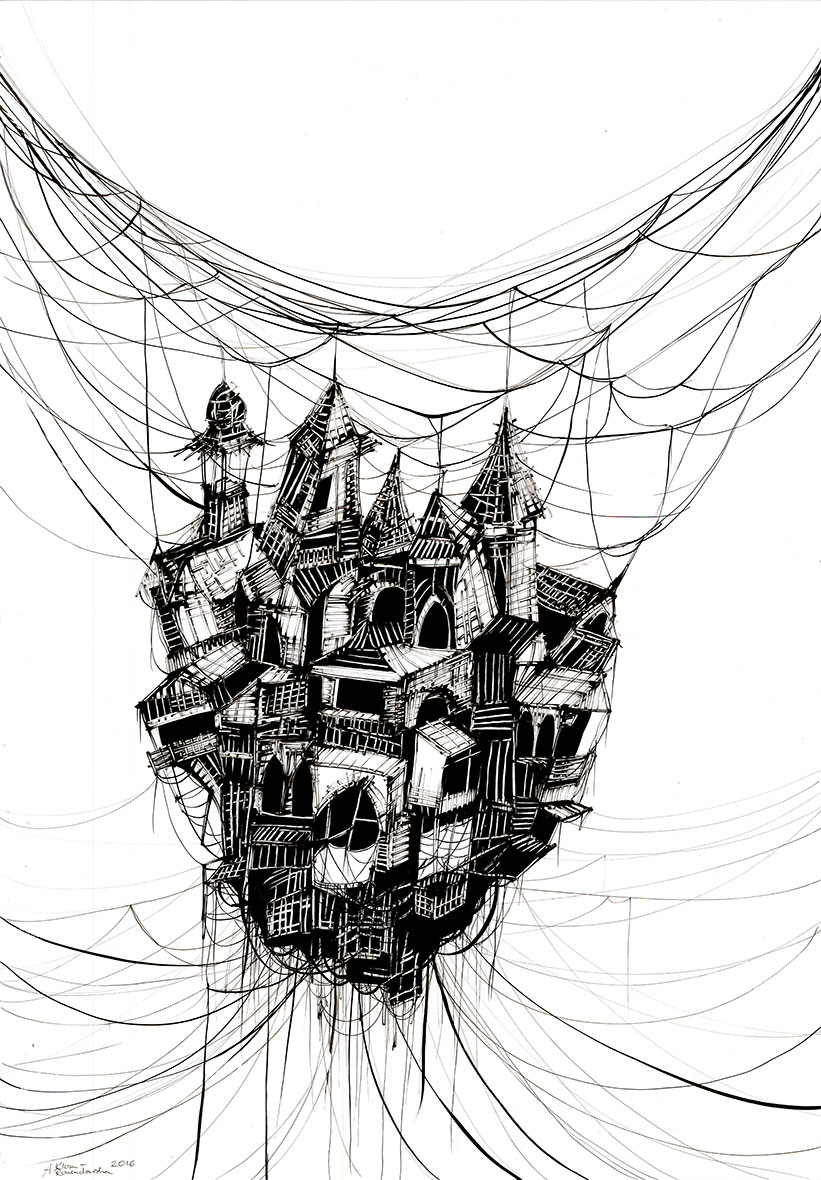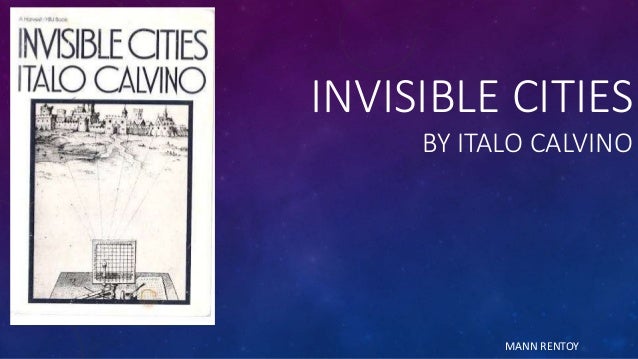

Those stories appear in a second collection of Cosmicomics, the story sequence that represents one of Calvino's greatest achievements. "This", he clarified, "is not a compliment". Gore Vidal, who in a famous 1974 essay in the New York Review of Books effectively launched Calvino in the English-speaking world, grumbled that t zero "could have been written (and rather better) by Borges" and that The Chase reminded him of Robbe-Grillet. Not everyone was a willing passenger on these particular journeys, however. These stories aligned Calvino with the OULIPO group, the Paris-based circle including Raymond Queneau and Georges Perec, which sought to graft the rigour and constraints of mathematics onto the freedoms and ambiguities of literature.
Invisible cities italo calvino summary driver#
In stories such as t zero and The Night Driver (1967) he goes astonishingly far, stripping out character and plot yet retaining narrative momentum. With occasional exceptions, such as the fine 1963 story The Watcher, about the 1953 national election, Calvino abandoned realism.įrom the 1960s onwards Calvino's work often took the form of a game played between himself and the reader, or himself and a concept. This project cemented his regard for "the force of reality which bursts forth into fantasy" a term that could be applied to the majority of his subsequent work. In the same period Calvino worked on his anthology Italian Folktales (1956), a conscious attempt to produce a Grimm-like survey of stories from the Italian peninsula.

That book, the historical fantasy The Cloven Viscount (1951), was followed by two of similar style, The Baron in the Trees and The Nonexistent Knight. As he later explained: "Instead of making myself write the book I ought to write, the novel that was expected of me, I conjured up the book I myself would have liked to read, the sort by an unknown writer, from another age and another country, discovered in an attic." Already, however, a fairytale quality imbued some of them, for example Animal Wood, and this is the direction in which his work tended throughout the 1950s the neorealist novel of Italian society that readers anticipated did not appear. In the late 1940s Calvino wrote a number of Hemingwayesque stories that drew on his own wartime experience. "One starts off writing with a certain zest, but a time comes when the pen merely grates in dusty ink, and not a drop of life flows, and life is all outside, outside the window, outside oneself, and it seems that never more can one escape into a page one is writing, open out another world, leap the gap."

As the narrator of his 1959 novel The Nonexistent Knight mourns, revealing the pessimism that counterbalances the exuberance of his work, In structural terms these books also codify his passion for beginnings and mistrust of endings, positions that perhaps explain why he habitually moved from one obsession to another, looking for the next impossible thing to write. Between the late 1940s and his relatively early death in 1985, aged 61, he produced as varied and individual a body of work as any writer in the modern era: neorealist stories of the second world war and postwar period (the young Calvino served as a partisan, and was a Communist party member until shortly after the Soviet invasion of Hungary in 1956), fables, political allegories, historical novels, stories inspired by scientific theories, thought experiments, narratives generated using tarot cards and computer processes, and, at either end of the 1970s, two novels – Invisible Cities and If on a Winter's Night a Traveller – that exemplify his method of using fantasy to address reality. Like much of Calvino's work, the statement is at once ironic and quite serious, and is justified entirely by his extraordinary bibliography. In a lecture delivered in New York in the spring of 1983, Italo Calvino remarked that "most of the books I have written and those I intend to write originate from the thought that it will be impossible for me to write a book of that kind: when I have convinced myself that such a book is completely beyond my capacities of temperament or skill, I sit down and start writing it".


 0 kommentar(er)
0 kommentar(er)
